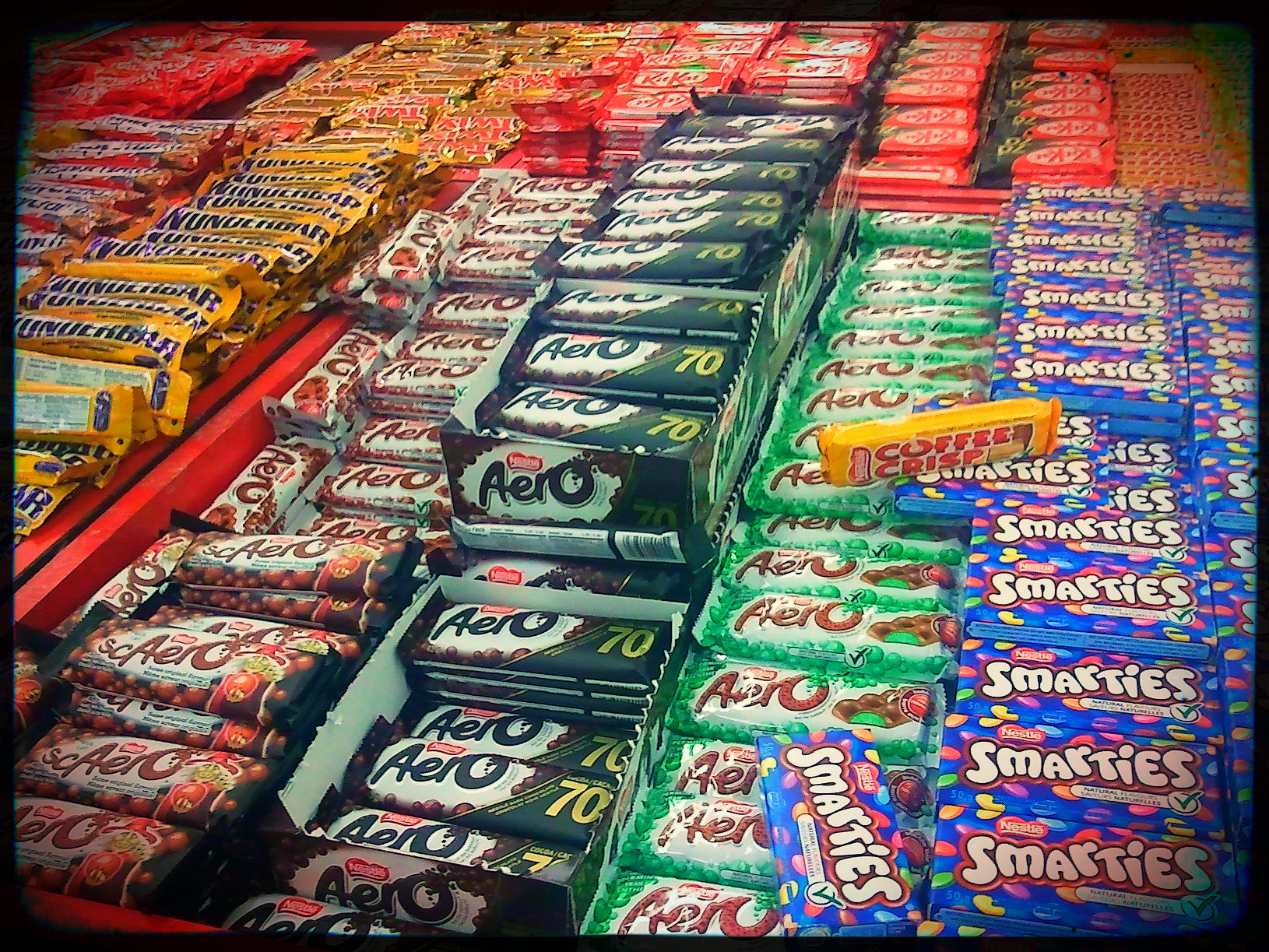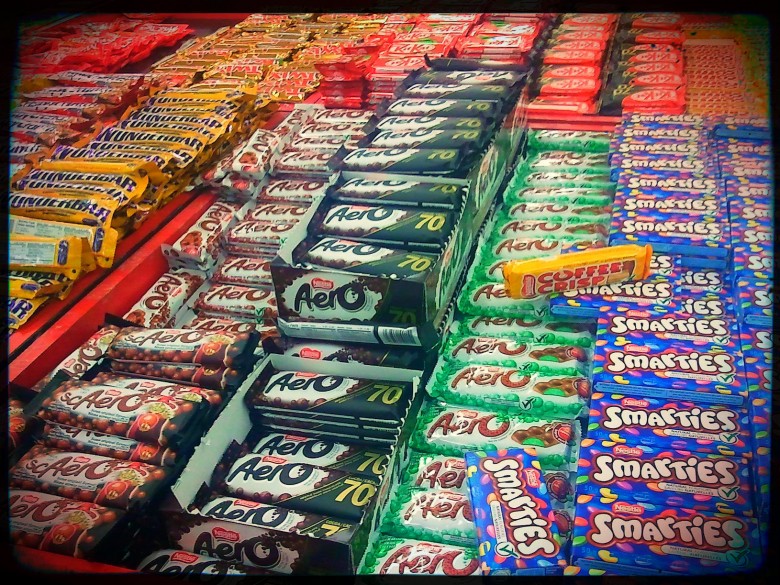[youtube id=”YlVICw_kydM”]
The last week of October to roughly the second week of February is peak chocolate-buying season, but do you know where your cocoa (and other candy ingredients) comes from? I mean, like, do you really know?
I will never look at cheap coffee, chocolate or sugar the same again.
One of my big take-aways from my trip to El Salvador with World Vision Canada this past September is how important it is to support agricultural practices that help communities, not harm them. Seeing where these kids live, and how much work goes into simply surviving, I will never look at cheap coffee, chocolate or sugar the same again.
A child who goes to school is less likely to repeat the cycle of poverty; he is less likely to join a gang, to go hungry, or have health problems. 59 per cent of children who work are employed in agriculture; the work is dangerous, and their wages are meager at best. They are exposed to dangerous equipment (which has been designed to be used by an adult), pesticides, and abuse.
We support child slavery when we buy cheap coffee, chocolate, sugar and candy. But it isn’t expensive to buy a little better.
“Visiting these communities and seeing the work that is being done to help farmers in these regions is humbling with regards to the amount of continued work that needs to be done in the long term,” says Peter Higgins, President and Chocolate Scientist at Purdy’s, who had the opportunity to visit communities in West Africa where cocoa is grown. “It is very difficult to understand from a western perspective the scope of the challenges that are involved in helping cocoa growing farmers and communities.”
It’s true that the problems are complex, but the solutions are within reach.
We support child slavery when we buy cheap coffee, chocolate, sugar and candy.
“It’s important to help support the farmers and their families that are involved in the production of cocoa. We have the opportunity to help better the livelihoods of families in cocoa growing communities, and helping to support sustainability programs that see success through the long term,” says Higgins. Purdy’s supports the World Cocoa Foundation (WCF), Rainforest Alliance and other independent sustainability programs in order to ensure the sustainability of its products at every level, from educating farmers to supporting business initiatives for single mothers in cocoa-growing communities.
If you’re like me, you haven’t bought your candy for Halloween yet. When you’re buying, look for products that are Fair Trade-, Rainforest Alliance-, or WCF-certified. This does not have to cost you a fortune – Cadbury’s Dairy Milk bars are Fair Trade (the rest of Cadbury’s products should be Fair Trade certified by 2015; Hershey’s shares the same goal).
When you’re buying your chocolate for the holidays or Valentine’s, consider Purdy’s, a Canadian company who is making considerable efforts to help cocoa farmers and their families in the developing world. For your Christmas baking, consider Camino cocoa products. This is not a sponsored post; this is just me telling you what I know as someone with not a lot of money who wants to use her dollar responsibly.
Don’t know if your favourite chocolate or candy is ethical? Ask them. Tweet at them, write them letters, and write to your MP to tell them why ethical, sustainable business practices are important to you. Pester them. And why not? If you love something, and you want to keep buying it, tell the manufacturer. Bug them. Tell your friends to bug them. Where you spend your money can make all the difference in the world; it is the easiest and perhaps most effective way to make a difference.
You can ask Purdy’s staff questions about the chocolate they sell. World Vision has a Good Chocolate Guide – consult it before making your chocolate purchases this season. And read up on the Harkin-Engel Protocol, a coalition of chocolate manufacturers who are working together to end the worst forms of child labour in the chocolate industry by 2020.
Every child deserves a childhood. Buy fair, buy sustainable, and support kids and families everywhere.


[…] UrbanMoms.ca, and my job was to learn about poverty and child labour and write about what I saw and how Canadians could help. It was pretty much the ideal situation for a writer; they fed me and gave me endless […]